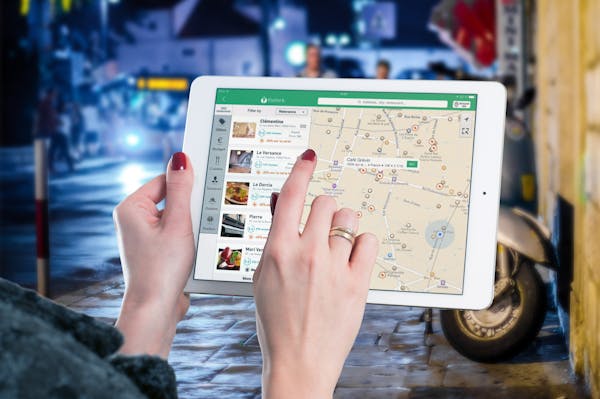In today’s digital age, local SEO (Search Engine Optimization) is crucial for businesses aiming to attract nearby customers. Whether you run a brick-and-mortar store or a service area business, optimizing your online presence for local search is essential. In this article, we’ll dive into the various local SEO tools and software available and how you can use them to boost your traffic.
Comprehensive Guide to Local SEO Tools and Software
Local SEO tools and software are essential for businesses aiming to improve visibility in local search results. This guide explores top tools like Google My Business, Moz Local, BrightLocal, and software solutions like Yext and Synup. These tools help manage online listings, monitor reviews, track local rankings, and build citations, all vital components for local SEO success.
Leveraging these tools ensures consistent business information across platforms, enhances customer engagement, and drives local traffic. By integrating effective local SEO strategies, businesses can significantly boost their visibility and attract more local customers.
Introduction to Local SEO
Local SEO focuses on optimizing your website and online presence to appear in local search results. When users search for “best coffee shop near me” or “plumber in [city],” Google provides results tailored to their geographic location. To rank higher in these search results, businesses need effective local SEO strategies.
Why is Local SEO Important
With the rise of mobile searches and voice assistants, consumers increasingly seek out nearby businesses. Studies show that 46% of all Google searches have local intent. If you don’t have a robust local SEO strategy, you’re missing out on a significant portion of your audience.
- 46% of all Google searches have local intent.
- 76% of people who search for something nearby on their smartphone visit a business within a day.
- 28% of searches for something nearby result in a purchase.
Essential List of Local SEO Tools
Using the right tools and software can make a huge difference in your local SEO efforts. Here are some top tools to consider:
Google My Business (GMB)
Google My Business is a cornerstone for local SEO. Optimizing your GMB profile ensures that your business appears in Google Maps and local search results. Key features include:
- Business Information: Fill in accurate NAP (Name, Address, Phone Number) details.
- Customer Reviews: Respond to reviews to build trust and boost rankings.
- Posts and Updates: Regularly post updates, offers, and events to engage customers.
Moz Local
Moz Local helps you manage your online listings and ensures that your business information is consistent across the web. Key features include:
- Listing Management: Distribute your business data to major directories.
- Duplicate Suppression: Identify and remove duplicate listings.
- Review Monitoring: Track and respond to customer reviews.
BrightLocal
BrightLocal is an all-in-one local SEO tool that offers features like:
- Citation Building: Manage and build citations across various platforms.
- Rank Tracking: Track your local keyword rankings over time.
- Google My Business Audit: Analyze and optimize your GMB listing.
SEMrush Listing Management Tool
SEMrush’s listing management tool offers a comprehensive solution for managing local listings. Features include:
- Directory Submissions: Automate your business information distribution.
- Local Ranking Check: Monitor your rankings in different locations.
- Review Management: Track reviews from multiple sources.
Whitespark
Whitespark offers several tools for local SEO, with a primary focus on citation building and local search tracking:
- Citation Finder: Discover new citation opportunities for your business.
- Local Rank Tracker: Track how well your business ranks in local searches.
- Review Management: Gather and monitor online reviews.
Comprehensive List of Local SEO Software
Beyond individual tools, there are complete software solutions designed for local SEO. These platforms offer more advanced features and integrations.
Yext
Yext is a powerful local SEO software that helps businesses manage their listings and online presence. Features include:
- Listing Management: Ensure consistent business information across over 100 directories.
- Reputation Management: Track and respond to reviews from different platforms.
- Local Page Optimization: Create and manage location-specific landing pages.
Synup
Synup offers a versatile platform for managing local SEO, reviews, and listings:
- Listing Management: Automate the process of keeping your business data consistent.
- Review Management: Monitor and respond to customer reviews efficiently.
- Analytics and Reporting: Gain insights into your local SEO performance.
Reputation
Reputation.com focuses on improving your online reputation and visibility through its local SEO software. Features include:
- Review Monitoring: Respond to reviews in real-time.
- Listing Accuracy: Maintain consistent and up-to-date business information.
- Customer Experience Analytics: Analyze customer feedback and trends.
How to Use These Tools to Boost Traffic
Now that you’re familiar with various local SEO tools and software, let’s explore how to use them to drive more traffic to your website and physical location.
Optimize Your Google My Business Listing
Your GMB profile is often the first impression potential customers have of your business. Ensure that:
- Accurate Information: Regularly update your business name, address, phone number, and hours.
- Photos and Videos: Add high-quality images and videos of your business, products, and services.
- Engage with Reviews: Encourage satisfied customers to leave reviews and promptly respond to both positive and negative feedback.
Build and Manage Citations
Consistent citations (mentions of your business name, address, and phone number) across various directories and platforms are critical for local SEO. Use tools like Moz Local and BrightLocal to:
- Identify Inconsistent Data: Regularly audit and correct any discrepancies in your listings.
- Expand Your Presence: Discover new citation opportunities relevant to your industry and location.
Track Your Local Rankings
Local rank tracking is vital to understanding how your SEO efforts are performing. BrightLocal and Whitespark offer excellent solutions for this. Make sure to:
- Monitor Progress: Track the rankings of your primary keywords over time.
- Analyze Competitors: Keep an eye on your competitors and identify areas where they may be outperforming you.
Manage Reviews and Reputation
Your online reputation plays a significant role in attracting local customers. Use software like Yext, Synup, and Reputation.com to:
- Automate Review Requests: Encourage satisfied customers to leave reviews via automated emails or SMS.
- Respond Promptly: Address both positive and negative reviews quickly to show that you value customer feedback.
- Analyze Feedback: Use customer sentiment analysis tools to identify areas of improvement.
Leverage Location-Specific Landing Pages
Creating location-specific landing pages tailored to each of your service areas is a powerful local SEO strategy. Platforms like Yext can help you:
- Customize Content: Tailor your content, including keywords and calls-to-action, to specific cities or neighborhoods.
- Optimize for Local Keywords: Use localized terms and phrases relevant to each area.
- Include Local Testimonials: Showcase reviews and testimonials from customers in the respective area.
Best Practices for Local SEO
In addition to using tools and software, here are some best practices for boosting your local SEO:
- Consistent NAP Data: Ensure your business name, address, and phone number are consistent across all platforms.
- Localized Content: Create blog posts, guides, and resources focused on local topics and events.
- Mobile Optimization: Ensure your website is mobile-friendly, as many local searches are conducted on smartphones.
- Backlink Strategy: Build backlinks from reputable local websites, directories, and partners.
- Engage with the Community: Participate in local events, sponsorships, and community activities to build brand recognition.
Conclusion: Integrating Tools for Maximum Impact
Local SEO is an ongoing process that requires regular monitoring, updates, and optimization. By integrating the tools and software mentioned in this article into your strategy, you can ensure that your business stands out in local search results. Whether you’re just starting with local SEO services or looking to enhance your current efforts, investing in these tools is a step towards increasing your visibility, driving more traffic, and ultimately boosting your revenue.



